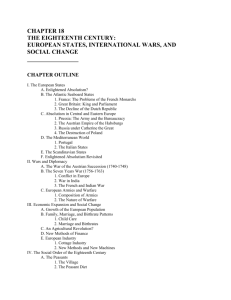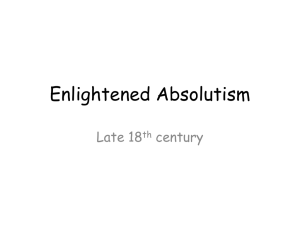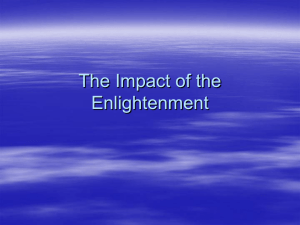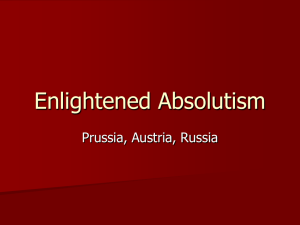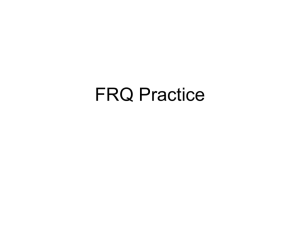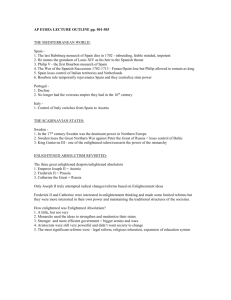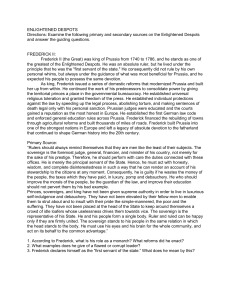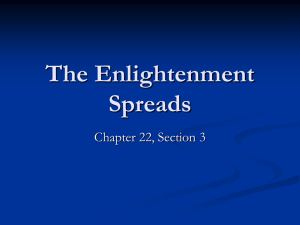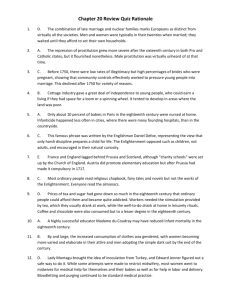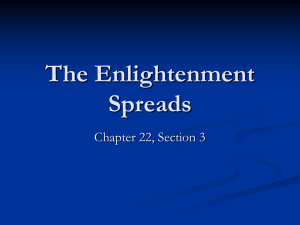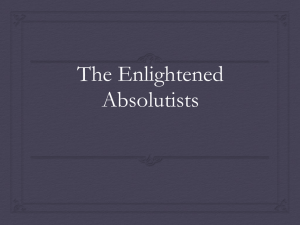File
advertisement
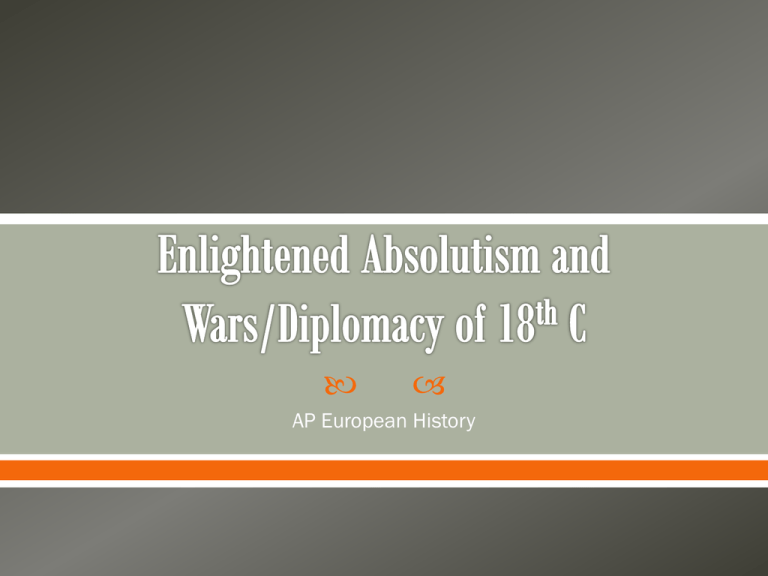
AP European History Most philosophes believed that benevolent absolutism was the best option for improving society Critical thinking turned the art of good government into an exact science Many absolutist rulers attracted to Enlightenment ideas – tried to govern in an “enlightened” manner Necessities of state and maintenance too precedence over reform 1. Enlightened absolutism in the eighteenth century a) b) c) d) e) Never completely overcame the political and social realities of the day Was most successful in strengthening administrative systems in the nation-states Was limited to policies that did not undermine the interests of the nobility All of the above None of the above Son of Frederick William I (Soldiers’ King) Invaded German province of Silesia Gradual demonstration of Enlightenment thought Reformed bureaucracy and legal system No change to social structure 1. Prussia’s Frederick the Great succeeded in a) b) c) d) e) Imposing his strict Protestantism on a Catholic populace Crushing the power of the Prussian nobility Carrying out reforms that pleased the philosophes Making Prussia’s scattered lands more unified and secure Marrying his sons to the strongest Catholic royal families Maria Theresa (r. 17401780) Strengthened bureaucracy & military Joseph II (r. 1780-1790) Changes to feudal system violently rejected Leopold II (r. 1790-1792) reversed many of Joseph’s reforms 1. The Austrian emperor Joseph II a) b) c) d) e) Reversed the enlightened reforms of his mother Maria Theresa Rescinded most of the privileges the Hungarians had enjoyed Stripped the nobility of all its former powers Was discouraged by the discontent that greeted his reforms Abdicated his throne during a peasant uprising German princess Married to Peter III Determined to rule in Enlightened manner Continued to bring culture of Western Europe to Russia Domestic Reform Pugachev’s Rebellion Partition of Poland 1. The partition of Poland in the late eighteenth century a) b) c) d) e) Occurred after decades of warfare with and between its neighbors Was prevented by the military intervention of Thaddeus Kosciuszko Showed that a nation in those days needed a strong king to survive None of the above All of the above Pragmatic Sanction Challenges from Prussia and France Worldwide conflict Peace Treaty of Aix-laChapelle New rivalries, three major areas of conflict Conflict in Europe War in India The French and Indian War Describe the causes and results of the Seven Years’ War. Explain why and how it was decisive for the colonial ambitions of Britain and France.

